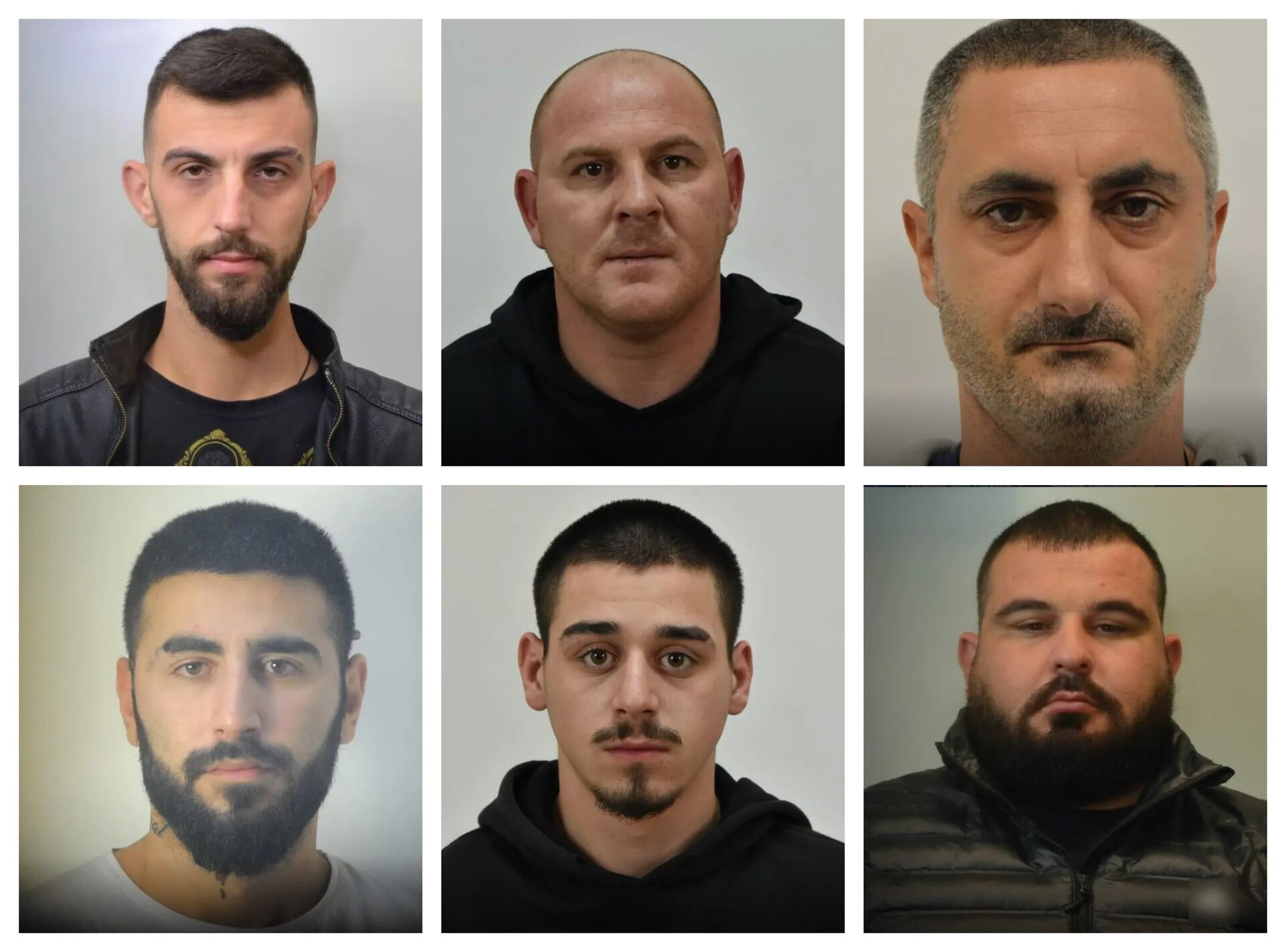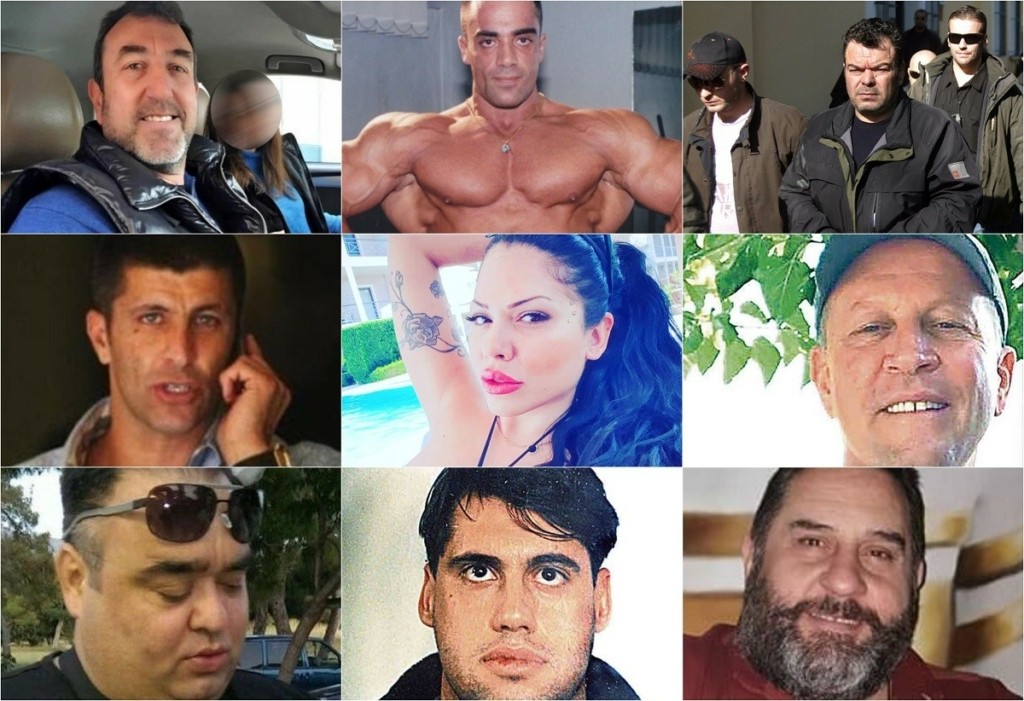Greek Mafia Members: The Untold Stories And Secrets Behind The Curtain
When you hear the term "Greek Mafia," what comes to mind? Is it a world of secrecy, power, and influence? Or maybe an underground network of crime lords operating in the shadows? Well, buckle up because we’re diving deep into the world of Greek Mafia members. This isn’t just about organized crime—it’s about the people, the history, and the intricate web that holds it all together. Get ready for a wild ride!
The Greek Mafia has been a subject of fascination for years, often shrouded in mystery and misconception. While it may not have the same level of global notoriety as the Italian Mafia, its impact on certain regions and industries is undeniable. From its roots in Greece to its influence across Europe and beyond, the Greek Mafia has carved out its own niche in the world of organized crime.
So, why should you care? Understanding the inner workings of Greek Mafia members can shed light on how criminal organizations operate and how they impact society. Whether you're a history buff, a crime enthusiast, or just someone curious about the darker side of human nature, this article will give you the insights you’re looking for. Let’s get started!
Read also:Chloe Radcliffe Rising Star Of The Digital Age
Table of Contents
- Biography of Prominent Greek Mafia Members
- The History of the Greek Mafia
- Structure of the Greek Mafia
- Criminal Activities of Greek Mafia Members
- Influence on Greek Society
- Law Enforcement Efforts Against the Greek Mafia
- Famous Cases Involving Greek Mafia Members
- International Connections of the Greek Mafia
- Modern-Day Greek Mafia
- Conclusion
Biography of Prominent Greek Mafia Members
Before we dive into the nitty-gritty, let’s take a moment to understand who these Greek Mafia members really are. Below is a brief overview of some of the most notorious figures in the Greek underworld. Think of it as a who’s who of the Greek Mafia.
Key Players in the Greek Mafia
Here’s a quick rundown of some infamous Greek Mafia members:
- Nikos Voutsis: Known as the "Godfather of Athens," Voutsis was one of the most powerful figures in the Greek underworld during the late 20th century. His empire spanned drug trafficking, extortion, and illegal gambling.
- Dimitris Asprekas: Often referred to as the "Master of Disguise," Asprekas was a mastermind behind several high-profile heists and drug operations. His ability to evade capture made him a legend in the criminal world.
- Petros Stefanidis: A key player in the heroin trade, Stefanidis was instrumental in establishing Greece as a major transit point for drugs coming from the Middle East and Asia.
Below is a table summarizing some key details about these individuals:
| Name | Alias | Main Activities | Years Active |
|---|---|---|---|
| Nikos Voutsis | Godfather of Athens | Drug Trafficking, Extortion, Illegal Gambling | 1970s - 1990s |
| Dimitris Asprekas | Master of Disguise | Heists, Drug Operations | 1980s - 2000s |
| Petros Stefanidis | Heroin King | Drug Trafficking | 1980s - Present |
The History of the Greek Mafia
Like any good story, the history of the Greek Mafia is filled with twists and turns. It all started in the early 20th century when Greece was dealing with political instability and economic hardship. These conditions created the perfect breeding ground for organized crime.
Fast forward to the 1970s, and the Greek Mafia had firmly established itself as a force to be reckoned with. Drug trafficking, particularly heroin, became a major source of income for these groups. Greece’s strategic location between Asia and Europe made it an ideal transit point for drugs coming from the Golden Triangle and Afghanistan.
Key Milestones in the Greek Mafia’s History
- 1970s: The rise of heroin trafficking, making Greece a key player in the global drug trade.
- 1980s: Expansion into other criminal activities such as arms smuggling and human trafficking.
- 1990s: Increased collaboration with international crime syndicates, particularly from Eastern Europe.
Structure of the Greek Mafia
The Greek Mafia operates in a hierarchical structure, much like other organized crime groups. At the top, you have the bosses, or "capos," who oversee the entire operation. Below them are the lieutenants, who manage specific areas or activities. Then come the soldiers, who carry out the dirty work.
Read also:Kellie Kyle The Rising Star Everyonersquos Talking About
What sets the Greek Mafia apart is its decentralized nature. Unlike the Italian Mafia, which operates under a strict code of omertà, the Greek Mafia is more flexible and adaptable. This allows them to quickly respond to changing circumstances and exploit new opportunities.
Criminal Activities of Greek Mafia Members
So, what exactly do Greek Mafia members do? Their activities span a wide range of illegal enterprises, from drug trafficking to money laundering. Here’s a closer look at some of their main operations:
- Drug Trafficking: The Greek Mafia is heavily involved in the heroin trade, with Greece serving as a key transit point for drugs coming from Asia and the Middle East.
- Money Laundering: With the help of corrupt bankers and shell companies, Greek Mafia members launder millions of dollars each year.
- Extortion: Businesses and individuals are often targeted for protection money, with violent consequences for those who refuse to pay.
Influence on Greek Society
The impact of the Greek Mafia on society cannot be overstated. From corrupting government officials to instilling fear in local communities, their influence is felt at every level. The Greek Mafia has also contributed to the country’s economic woes, with illegal activities siphoning off billions of dollars that could have been used for legitimate purposes.
Despite this, there are signs of hope. In recent years, law enforcement agencies have stepped up their efforts to combat organized crime, resulting in several high-profile arrests and convictions.
Law Enforcement Efforts Against the Greek Mafia
Fighting the Greek Mafia is no easy task. These groups are well-organized, well-funded, and often have connections in high places. However, law enforcement agencies in Greece and abroad have made significant progress in recent years.
Collaboration with international partners, such as Europol and Interpol, has been crucial in dismantling these criminal networks. Advanced technology and data analysis have also played a key role in identifying and tracking suspects.
Notable Successes in Fighting the Greek Mafia
- Operation Hermes: A joint operation between Greek and Italian authorities that resulted in the arrest of several key figures in the heroin trade.
- Operation Phoenix: Targeted at money laundering operations, this operation led to the seizure of millions of euros in cash and assets.
Famous Cases Involving Greek Mafia Members
Over the years, there have been several high-profile cases involving Greek Mafia members. These cases have shed light on the inner workings of these organizations and the extent of their influence.
Case Study: The Voutsis Empire
Nikos Voutsis, the "Godfather of Athens," built an empire that spanned drug trafficking, extortion, and illegal gambling. His downfall came in the 1990s when he was arrested and sentenced to life in prison. The case revealed the extent of corruption within Greek law enforcement and the judiciary.
International Connections of the Greek Mafia
The Greek Mafia doesn’t operate in isolation. They have established connections with other criminal organizations around the world, particularly in Eastern Europe and the Balkans. These partnerships allow them to expand their operations and increase their profits.
For example, the Greek Mafia has been linked to Russian organized crime groups involved in cybercrime and human trafficking. These collaborations highlight the global nature of organized crime and the challenges faced by law enforcement agencies.
Modern-Day Greek Mafia
Today, the Greek Mafia continues to evolve and adapt to changing circumstances. With the rise of digital technology, they have embraced new methods of communication and money laundering. However, they face increasing pressure from law enforcement agencies and a more informed public.
Will the Greek Mafia be able to maintain its grip on power, or will they eventually be brought to justice? Only time will tell, but one thing is certain—the battle against organized crime is far from over.
Conclusion
In conclusion, the world of Greek Mafia members is a complex and fascinating one. From its humble beginnings in the early 20th century to its current status as a global criminal organization, the Greek Mafia has left an indelible mark on society. Understanding its history, structure, and activities is essential for anyone looking to gain insight into the darker side of human nature.
So, what can you do? Educate yourself, stay informed, and support law enforcement efforts to combat organized crime. Together, we can make a difference and help create a safer world for everyone. Don’t forget to leave a comment or share this article with your friends. The more people know, the better equipped we are to fight back against the forces of darkness!


